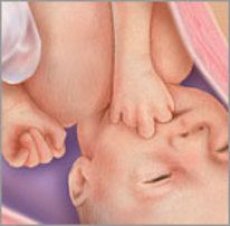Medical expert of the article
New publications
Pregnancy: 29 weeks
Last reviewed: 08.07.2025

All iLive content is medically reviewed or fact checked to ensure as much factual accuracy as possible.
We have strict sourcing guidelines and only link to reputable media sites, academic research institutions and, whenever possible, medically peer reviewed studies. Note that the numbers in parentheses ([1], [2], etc.) are clickable links to these studies.
If you feel that any of our content is inaccurate, out-of-date, or otherwise questionable, please select it and press Ctrl + Enter.

How the child grows:
Your baby weighs almost 1.5 kg and is 38 cm long. His muscles and lungs continue to develop. To meet all his demands, you need more protein, vitamin C, folate, and iron. In this trimester, about 250 milligrams of calcium daily helps strengthen your baby's skeleton.
Important: Each baby's development is unique. Our information is designed to give you a general idea of fetal development.
Changes in the expectant mother
Your baby is very active now, and your doctor may recommend that you spend a little time each day counting the number of movements over a period of time. Let your doctor know if the movements decrease, and that you may need a biophysical profile to check on your baby.
Heartburn and constipation may flare up again. The hormone progesterone relaxes smooth muscle tissue throughout the body, including the gastrointestinal tract. This relaxation slows down digestion, which in turn can cause gas and heartburn. You are also now susceptible to hemorrhoids due to the growth of your uterus, but these will subside within a short time after delivery. If they are itchy or painful, warm baths or cold compresses may help. Also, try to change positions often. Tell your doctor if you have rectal bleeding. To prevent constipation, eat a high-protein diet, drink plenty of water, and exercise regularly.
Some pregnant women notice increased heart rate and blood pressure when lying on their back, and dizziness when changing positions. If you are one of these women, try to lie on your side rather than your back.
Enjoy your freedom, "Make the most of your last few free weeks. Do things that make you happy: watch movies, get a facial, have romantic dinners with your partner." - Bethany
3 Questions... about maternity leave
- Should my employer let me go on maternity leave?
Yes, according to the law. For more detailed information, read the official documents and consult with the hotel's HR or legal department.
- When should I go on maternity leave?
Some women go on maternity leave in the seventh or eighth month, while others work until the birth. You should monitor your pregnancy to determine the right time to go on maternity leave. If your doctor recommends bed rest or complications develop, you will be forced to go on maternity leave or sick leave earlier.
- What is the best time to discuss planned maternity leave with your boss?
First, familiarize yourself with the labor code and legislation and, if necessary, contact a representative of the legal department or the HR department. You can also talk to colleagues who have already gone through this path.
Next, make a plan. Think about how much time you need, how you plan to use your regular vacation and sick leave, and when you plan to return to work. When making this plan, consider your partner’s preferences and coordinate your decisions with them.
This week's activity: Go shopping.
The list of things needed for the first few weeks includes:
- Diapers and wet wipes.
- Baby care items such as nail scissors, thermometer, syringe and pacifier.
- Ecological detergent for washing.
- Sanitary pads for you. (You will bleed for a few weeks after delivery)
- Paper towels and paper plates for quick cleanup after meals.

